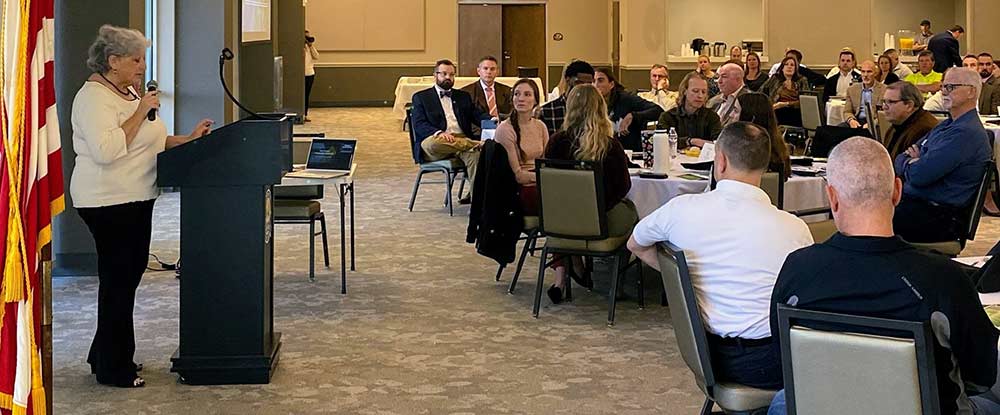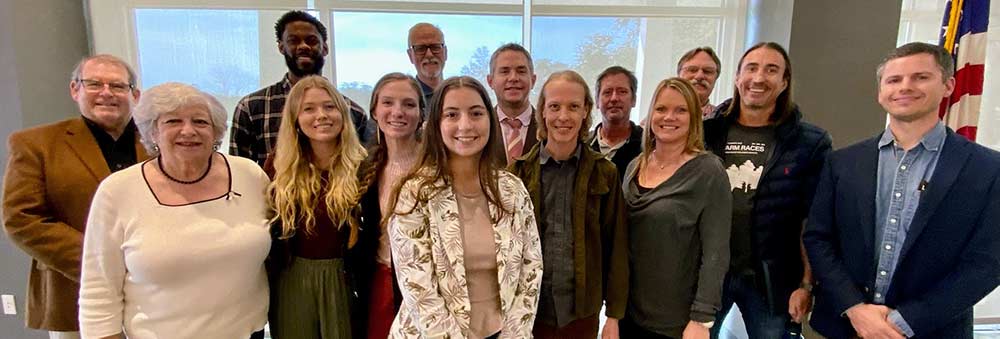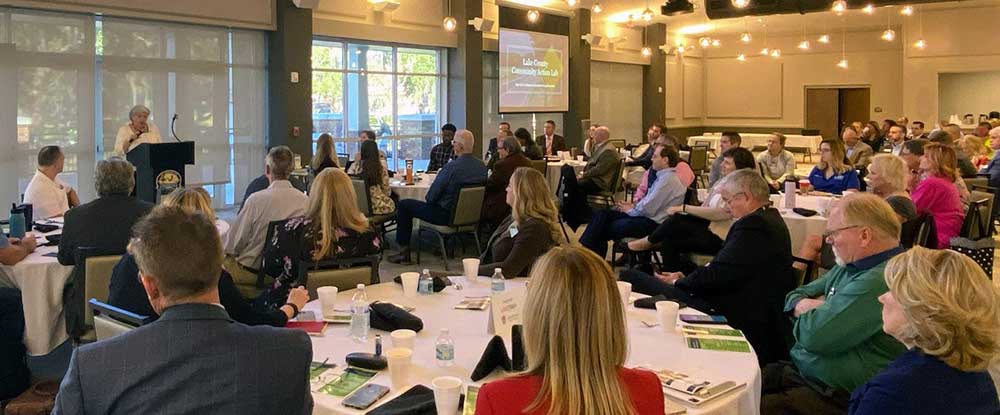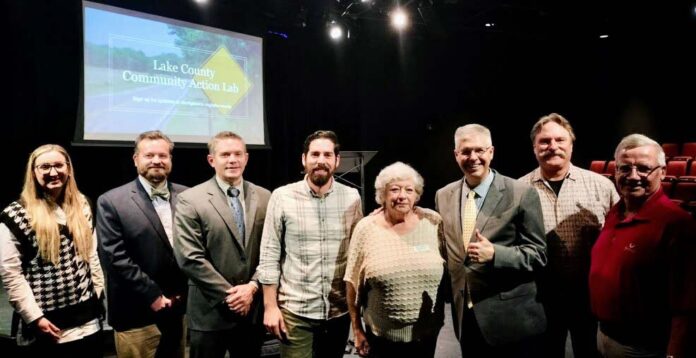Article and Photos by Marty Proctor
Every now and then we have the opportunity to be part of history and do something for the first time. On January 18th Groveland and Lake County sponsored the first Strong Towns Summit held in the United States. This is a four-meeting event, held in Leesburg and Clermont. We are the first community anywhere to do a Strong Towns Action Lab. The Lab is a grassroots movement with a 2-year action and leadership learning plan.
The program was kicked off by Commissioner Leslie Campione who reminded those present, “we need to create a more sustainable and livable future.” She noted that Lake County has lots of space – the Green Swamp, Ocala National Forest, lakes and blueways. Adding, “There has got to be a way to develop without paving over every square foot of developable land”. She was followed by Groveland mayor Evelyn Wilson who shared visions of Groveland’s future and that Groveland is “proud to be the first.”

Author Chuck Marohn, author of “Strong Towns: A Bottom-Up Revolution to Rebuild American Prosperity”, was the main speaker at the program. His topics included:
-
-
- Does the government need to run a profit?
- Productive development patterns and financial implications of current land use;
- What public Investments look like;
- The Community Action lab process.
-
Chuck’s first message involved whether the municipal government is a public corporation or not. Does the local government need to run a profit? If the condition is to do a good job today and a better job in the future, then yes. In order to be successful, the ratio of public to private investment, the ratio of private to public investment, needs to be in the range of 20 to 40 to 1. Without a private investment unit, municipal debt exceeds the future residents’ capabilities to pay for the quality of life expected by both current and future residents.
For centuries communities have grown as a complex adaptive system. Communities grew based on private investment first proving the value. That was followed up by public investment in utilities, infrastructure and services. When cities grow this way, they are complex systems and highly adaptable. When there’s excessive planning and upfront public investment in infrastructure the system simply becomes complicated. If a complex system fails, it adapts. If a complicated system fails, it collapses.

Adaptive cities become kinetic engines of growth. When operating correctly, a kinetic growth machine results in the building of wealth in residents and businesses. Watching and living with this adaptive process, citizens must embrace a certain amount of messiness, chaos and change. Another possible goal is to remove the barriers to adaptive growth. We got here by dysfunction, not by an evil kinetic growth machine. Today we are gambling on the future. Building debt and infrastructure responsibility for future generations. Historically private investment precedes public investment. This is robbing our future.
Since the 1930’s onset of the depression followed by the horrors, stresses and resource challenges of World War II, the country has embarked on a radically different city-creation model. Though it may appear that this model has been in place forever and is very successful, it has only been around for 70 years.
The postwar pattern of development known as the Suburban Experiment is a failure. For decades, the Suburban Experiment squandered resources that were supposed to set us up for success. Now our cities are on increasingly fragile financial ground. They are also less safe and less inviting. What’s worse, the window of opportunity is closing for our communities to set their own course.
The consensus for generations has been that everybody is in on the American dream and it will go on forever. Given the infrastructure and financial challenges being created today, Strong Towns posits that this may not be. Thus, requiring a new way to think about our future and how the present will affect and shape the future. The Suburban Experiment will march on unless someone steps in to stop it. The Strong Towns Lab is here to help.

The Lake County Board of Commissioners agreed to fund the strong town’s program in July of 2022 for the benefit of the entire county. In addition to the two-day Summit the strong labs strong towns team will be working with a community action lab team for the next 12 months during intensive development sessions to integrate solutions throughout the county. Two main lab teams were established. One is a leadership team composed of local leaders and politicians and business owners. The other is an action team composed of community government and other activists. Both teams will work throughout the coming year to learn the basic principles of strong towns and how to implement them. Strong Towns will lead 3 community events over the first 12 months. The second year will be spent sharing and implementing Strong Town principles throughout our local government and community.
The program promises no answers, no reports or consultants. The stated goal is to offer the opportunity to help Lake County think differently. The program is to change the perspective and provide new ways to collectively take action – Help the community think differently, not tell them what to do. This will come not from a defined idea, specific action or path, or magic pill but more like a program of diet and exercise to create a new way for Lake County to think differently over the next two years. The audience is public officials, technical staff and the general public.
To learn more, visit https://www.strongtowns.org/lake-county which is a website specific to Lake County.
Residents are encouraged to sign up for locally-specific updates and to learn more about the Strong Towns Lab.






